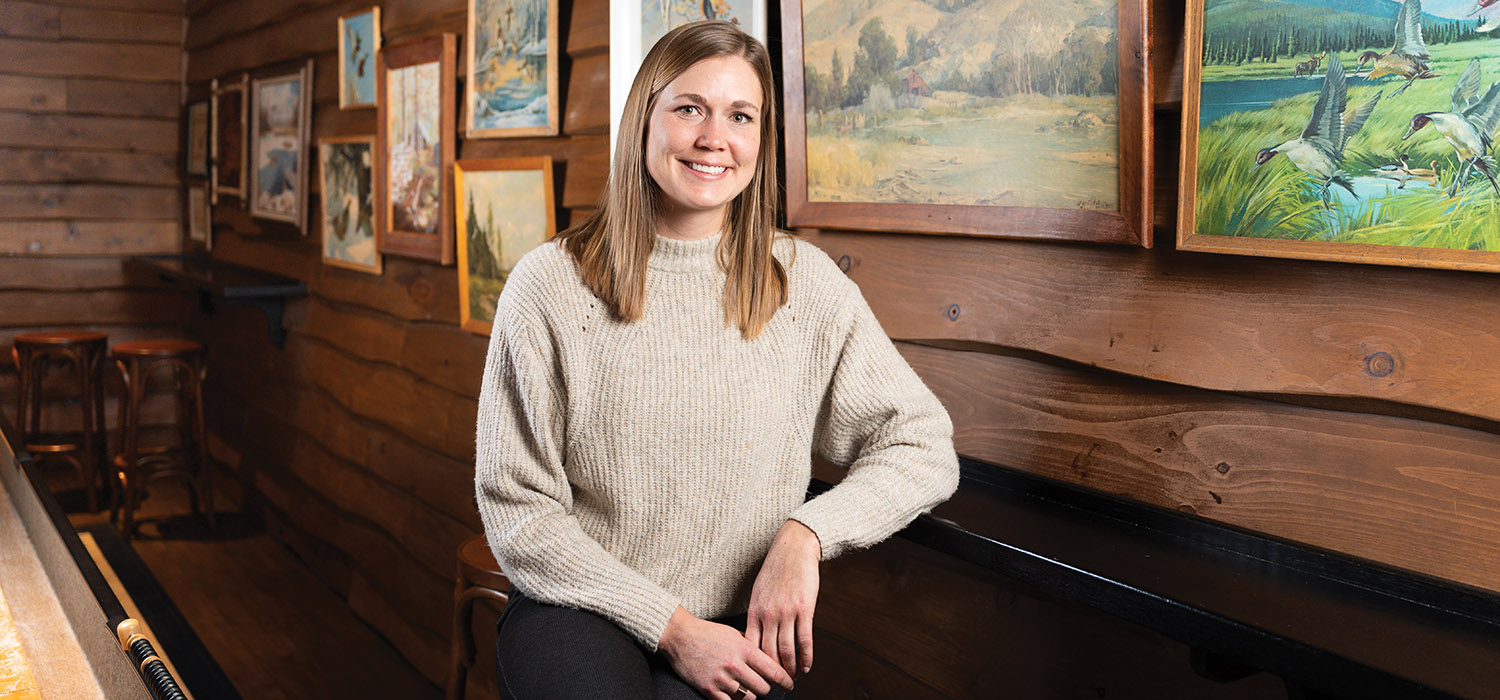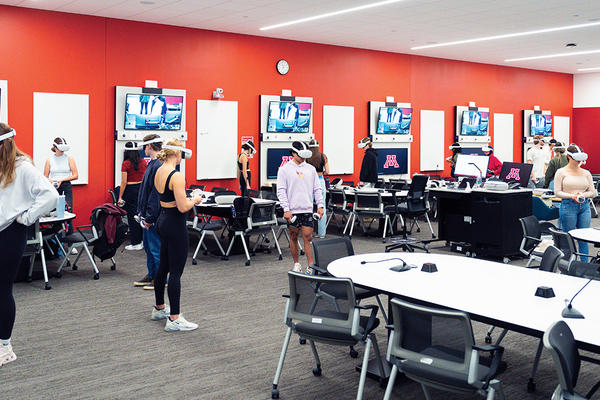Bringing specialized women’s health care to rural Minnesota
DNP student Mattie Ellenson named Emerging Rural Health Leader
May 13, 2024
Brett Stursa

Mattie Ellenson is a member of the school’s Doctoral Education Pathway for American Indian/Alaska Native Nurses, which supports AI/AN nurses in completing a doctoral degree.
After a decade of caring for families — first as a labor and delivery nurse and later as a public health nurse — and after three years in classrooms and clinical rotations as a student in the Doctor of Nursing Practice (DNP) program, Mattie Ellenson is ready to bring specialized women’s health care to rural Minnesota. On the cusp of graduating in May, Ellenson says it will be an honor to provide care as a women's health care nurse practitioner near her home in Wadena.
“I think being able to bring more specialized women's care rurally is important,” says Ellenson. “There's still more traditional ways of life in rural living that make it challenging for women to get care. I think we’re starting to do a better job with pregnancy and postpartum and the struggles of those parts of a woman's life. So hopefully, we’ll get there with mid to later life issues that women are facing too.”
Her leadership in leading the charge to improve rural health has already garnered the attention of the Minnesota Rural Health Association, which named her the recipient of the Emerging Rural Health Leader Award this year.
Seeing a need for specialized care for women
Ellenson was first drawn to nursing because of the trust people put into nurses. “It’s an honorable profession and there are many directions you can take it,” she says. She sought a DNP degree to have a greater impact on her patients’ lives. When she learned about the women’s health and gender-related nurse practitioner program at the University of Minnesota, she knew it was the right fit.
“I think what was a big draw to the program was that it was already women’s health specific and it was a doctoral program,” says Ellenson.
The program was also a good fit because she was able to complete all of her clinical placements in rural clinics, with family nurse practitioners, OB-GYNs and nurse-midwives.
“People will ask why I picked women’s health or if I limited myself too much, but my experience has made it obvious that there’s a space for a women’s health nurse practitioner with someone who has more knowledge in specific areas that affect women. I think my clinical placements made me even more aware of the need around where I live,” says Ellenson.
As a DNP student, she partnered with the White Earth Band of Chippewa Indians on the White Earth reservation to implement rapid HIV testing at an established medication assisted treatment clinic. She led the training of 15 nurses and community health workers on conducting the rapid tests and providing counseling.
The project was particularly meaningful, as Ellenson is a descendent of White Earth Nation, where her grandpa James was an enrolled member.
Ellenson is also a member of the school’s Doctoral Education Pathway for American Indian/Alaska Native Nurses, which supports AI/AN nurses in completing a doctoral degree. As a student in the pathway program, Ellenson attended an Indigenous nursing conference, met regularly with a cohort of other Indigenous DNP students and received financial support.
“I am thankful for the opportunity that the University of Minnesota Pathway Initiative has provided me to continue to learn and enhance my cultural identity,” Ellenson said as a speaker at the Dean’s Dinner last year. “Through this initiative I have made numerous connections with students, faculty and relatives that I look forward to continuing to nurture in my final year of coursework and as a doctorally prepared Indigenous nurse.”
Ellenson will be launching her career as a women’s health nurse practitioner after she graduates in May. As a women’s health nurse practitioner, she will provide comprehensive women's health care, which includes sexual health, menopause symptoms management, well women care and prenatal/postpartum care in collaboration with midwives and OB-GYNs.
“A lot is still not talked about,” says Ellenson. “So, I think a big piece in the future rural health care is breaking down those stigmatizations or stereotypes.”

